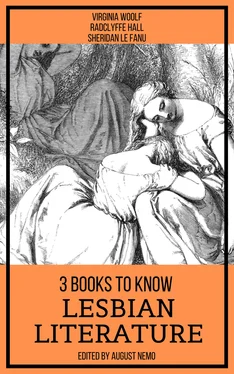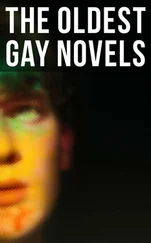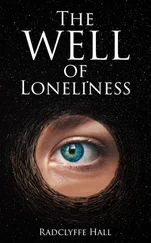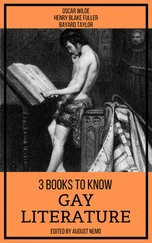'Let me look at your ring, Bartholomew,' she said, stretching her hand to take it.
At this, Bartholomew made as if she had been struck in the breast by a rogue. She started back a pace or two, clenched her hand and flung it away from her with a gesture that was noble in the extreme. 'No,' she said, with resolute dignity, her Ladyship might look if she pleased, but as for taking off her wedding ring, not the Archbishop nor the Pope nor Queen Victoria on her throne could force her to do that. Her Thomas had put it on her finger twenty-five years, six months, three weeks ago; she had slept in it; worked in it; washed in it; prayed in it; and proposed to be buried in it. In fact, Orlando understood her to say, but her voice was much broken with emotion; that it was by the gleam on her wedding ring that she would be assigned her station among the angels and its lustre would be tarnished for ever if she let it out of her keeping for a second.
'Heaven help us,' said Orlando, standing at the window and watching the pigeons at their pranks, 'what a world we live in! What a world to be sure!' Its complexities amazed her. It now seemed to her that the whole world was ringed with gold. She went in to dinner. Wedding rings abounded. She went to church. Wedding rings were everywhere. She drove out. Gold, or pinchbeck, thin, thick, plain, smooth, they glowed dully on every hand. Rings filled the jewellers' shops, not the flashing pastes and diamonds of Orlando's recollection, but simple bands without a stone in them. At the same time, she began to notice a new habit among the town people. In the old days, one would meet a boy trifling with a girl under a hawthorn hedge frequently enough. Orlando had flicked many a couple with the tip of her whip and laughed and passed on. Now, all that was changed. Couples trudged and plodded in the middle of the road indissolubly linked together. The woman's right hand was invariably passed through the man's left and her fingers were firmly gripped by his. Often it was not till the horses' noses were on them that they budged, and then, though they moved it was all in one piece, heavily, to the side of the road. Orlando could only suppose that some new discovery had been made about the race; that they were somehow stuck together, couple after couple, but who had made it and when, she could not guess. It did not seem to be Nature. She looked at the doves and the rabbits and the elk-hounds and she could not see that Nature had changed her ways or mended them, since the time of Elizabeth at least. There was no indissoluble alliance among the brutes that she could see. Could it be Queen Victoria then, or Lord Melbourne? Was it from them that the great discovery of marriage proceeded? Yet the Queen, she pondered, was said to be fond of dogs, and Lord Melbourne, she had heard, was said to be fond of women. It was strange—it was distasteful; indeed, there was something in this indissolubility of bodies which was repugnant to her sense of decency and sanitation. Her ruminations, however, were accompanied by such a tingling and twanging of the afflicted finger that she could scarcely keep her ideas in order. They were languishing and ogling like a housemaid's fancies. They made her blush. There was nothing for it but to buy one of those ugly bands and wear it like the rest. This she did, slipping it, overcome with shame, upon her finger in the shadow of a curtain; but without avail. The tingling persisted more violently, more indignantly than ever. She did not sleep a wink that night. Next morning when she took up the pen to write, either she could think of nothing, and the pen made one large lachrymose blot after another, or it ambled off, more alarmingly still, into mellifluous fluencies about early death and corruption, which were worse than no thinking at all. For it would seem—her case proved it—that we write, not with the fingers, but with the whole person. The nerve which controls the pen winds itself about every fibre of our being, threads the heart, pierces the liver. Though the seat of her trouble seemed to be the left hand, she could feel herself poisoned through and through, and was forced at length to consider the most desperate of remedies, which was to yield completely and submissively to the spirit of the age, and take a husband.
That this was much against her natural temperament has been sufficiently made plain. When the sound of the Archduke's chariot wheels died away, the cry that rose to her lips was 'Life! A Lover!' not 'Life! A Husband!' and it was in pursuit of this aim that she had gone to town and run about the world as has been shown in the previous chapter. Such is the indomitable nature of the spirit of the age, however, that it batters down anyone who tries to make stand against it far more effectually than those who bend its own way. Orlando had inclined herself naturally to the Elizabethan spirit, to the Restoration spirit, to the spirit of the eighteenth century, and had in consequence scarcely been aware of the change from one age to the other. But the spirit of the nineteenth century was antipathetic to her in the extreme, and thus it took her and broke her, and she was aware of her defeat at its hands as she had never been before. For it is probable that the human spirit has its place in time assigned to it; some are born of this age, some of that; and now that Orlando was grown a woman, a year or two past thirty indeed, the lines of her character were fixed, and to bend them the wrong way was intolerable.
So she stood mournfully at the drawing-room window (Bartholomew had so christened the library) dragged down by the weight of the crinoline which she had submissively adopted. It was heavier and more drab than any dress she had yet worn. None had ever so impeded her movements. No longer could she stride through the garden with her dogs, or run lightly to the high mound and fling herself beneath the oak tree. Her skirts collected damp leaves and straw. The plumed hat tossed on the breeze. The thin shoes were quickly soaked and mud-caked. Her muscles had lost their pliancy. She became nervous lest there should be robbers behind the wainscot and afraid, for the first time in her life, of ghosts in the corridors. All these things inclined her, step by step, to submit to the new discovery, whether Queen Victoria's or another's, that each man and each woman has another allotted to it for life, whom it supports, by whom it is supported, till death them do part. It would be a comfort, she felt, to lean; to sit down; yes, to lie down; never, never, never to get up again. Thus did the spirit work upon her, for all her past pride, and as she came sloping down the scale of emotion to this lowly and unaccustomed lodging-place, those twangings and tinglings which had been so captious and so interrogative modulated into the sweetest melodies, till it seemed as if angels were plucking harp-strings with white fingers and her whole being was pervaded by a seraphic harmony.
But whom could she lean upon? She asked that question of the wild autumn winds. For it was now October, and wet as usual. Not the Archduke; he had married a very great lady and had hunted hares in Roumania these many years now; nor Mr M.; he was become a Catholic; nor the Marquis of C.; he made sacks in Botany Bay; nor the Lord O.; he had long been food for fishes. One way or another, all her old cronies were gone now, and the Nells and the Kits of Drury Lane, much though she favoured them, scarcely did to lean upon.
'Whom', she asked, casting her eyes upon the revolving clouds, clasping her hands as she knelt on the window-sill, and looking the very image of appealing womanhood as she did so, 'can I lean upon?' Her words formed themselves, her hands clasped themselves, involuntarily, just as her pen had written of its own accord. It was not Orlando who spoke, but the spirit of the age. But whichever it was, nobody answered it. The rooks were tumbling pell-mell among the violet clouds of autumn. The rain had stopped at last and there was an iridescence in the sky which tempted her to put on her plumed hat and her little stringed shoes and stroll out before dinner.
Читать дальше












